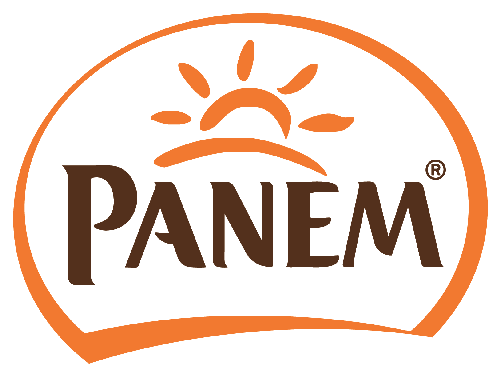For decades, Panem had been the biggest bread Factory in Italy and the third one in Europe (total area 28.000 sq. meters), mostly between 1989 and 2003 when its development was led by Barilla, Gran Milano and Le Tre Marie.
Following these years, the wide changes in fresh bread market have driven to a declining period and in the first months in 2018 the factory was forced to end its activities, turn off all ovens, causing the loss of job for dozens of workers.
On April 2019, thanks to Panitalia, the factory re-opened and began again to produce its goods, bringing Panem brand to life again
A renaissance
Panem project is born from an idea of an Italian businessmen group, who, getting inspired from the fragrant bread receipt, have created ad industrial plan based on easy postulates:
1. Certificate Italian flours either than conventional or organic sectors
2. Usage of skills developed by workers employed in Panem before its closure
3. Modern and clear vision of target market
4. Awareness of the strength of the and its “still-alive” link to consumers
5. Aim to face issues as sustainable environment and fight to wastes
Panem new products are realized using high-quality ingredients, with no added sugars, no emulsifiers, no lactose and mostly with no preservatives as calcium propionate and sorbic acid.
They are also produced through a deeply monitored process, following the most restricted rules in European food sector (IFS and BRC) and packaged in a sterile environment and at monitored temperature, with a procedure inspired by modern technologies of drug companies.
The aim is not only to create good products but to anticipate and look after the bigger concern of customers about issues as food security, flexibility of consume and conservation and, last but not least, environment safety.
An answer to concerns for environment and its sustainability can be seen in the recent launch of the organic line, that distinguishes itself not only for usage of flour, extra virgin olive oil and yeast 100% organic but also for the innovative packaging, consisting of a composite packaging made of film and paper that can be, thanks to a patent and a certification, completely be sent for disposal in the paper waste
Delicate issues of security and product traceability are faced using only certified food chain supplies. All Panem products come through cereals only sown, grown, collected and brought to the mill that lead the process, located in Italy.
Each quantity of seeds, flour and wheat is traced and certified and each movement is recorded and kept by CSQA in Thiene (VI) with the food chain supply certification UNI EN ISO 22005.

Panem has come again to market with a product that brings a much higher quality compared to the past and its future will be marked by other deeply innovative products in the business of soft breads and bread substitutes.
Panem is therefore back on the market with a product of clearly superior quality to its recent past and its future will be marked by other highly innovative products for the market for soft breads and bread substitutes. It is a good sign not only for the food sector but for the economy in general, and all this has been made possible by Italians who today still believe in doing business in our country.
